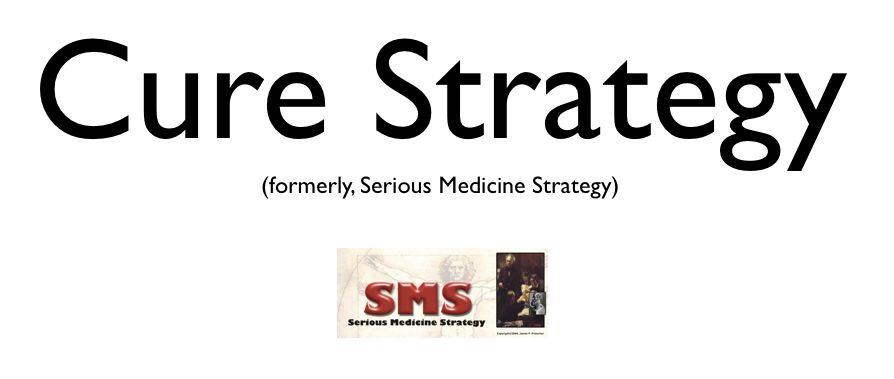The biggest health news today concerned Alzheimer's Disease (AD). At an international conference in Hawaii, scientists are now urging more tests for AD.
That's probably a good idea, but in this announcement, we can note, yet again, a perversity in our current system: In America today, there more interest--at least in Washington DC--in financing care for the disease than there is financing a cure for the disease.
Typical was a report tonight on ABC News from reporter Linsey Davis, who noted that critics worried that the new guidelines could "double or even triple" the number of people diagnosed with AD. So we could see a huge increase in the number of people diagnosed with the disease--a disease that costs the country $170 billion a year now, and could cost more than a trillion dollars by 2050. Yet the federal government spends just $600 million a year on AD research, a number that has barely budged in the last five years.
So one can detect more than a little penny-wise-and-pound-foolish in Uncle Sam's spending priorities. We spend a fortune after people get sick with AD, but just a pittance to keep them from getting sick.
Still, one can't help but wonder whether the push to identify more cases of AD doesn't have something to do with the dramatic liberalization, earlier this year, of the rules concerning getting government benefits for AD. In February 2010, the Obama administration quietly approved a vast increase in eligibility for "early onset" AD. Why the quiet? Because such an expansion, of course, was dramatically "off message" to the Obama mantra that Obamacare was going to "bend the curve" on healthcare costs. Yet while Obamans didn't make a big deal of that expansion, the Alzheimer’s Association trumpeted its success, the group even ran a full-page ad in The Washington Post, detailing its celebration of Uncle Sam’s action:
Of the 5.3 million Americans with Alzheimer’s disease, 200,000 have early-onset Alzheimer’s. Thanks to the Social Security Administration and changes to the Compassionate Allowances Initiative, decisions regarding the distribution of vital disability benefits to the early-onset population can now be made within weeks, instead of months or years.
So more federal money out the door. All in a good cause, perhaps, but the best cause is a cure.
Thus once again, we see the strange nature of our healthcare system: We are vastly more generous with funding of disease after people get it, than we are at helping people avoid getting it in the first place.
By helping people avoid disease, I don't just mean prevention through healthy eating and exercise and the avoidance of substance abuse, as important as those measures are. Plenty of people who live healthy lives still get sick. Some diseases--many diseases--are only avoided, or at least put off, by the application of Serious Medicine.
W. Edwards Deming would have a few things to say about this. Deming, the legendary management guru, died in 1993, but his wisdom about more efficient and effective systems will live for ever. Best known for his work with manufacturing companies, Deming was actually a student of all sorts of processes, including healthcare.
The heart of Deming’s philosophy was a rigorous statistics-based approach to monitoring efficiency and quality--Deming had been trained as a mathematician and physicist--combined with on-the-floor observation of production processes that Deming witnessed over the nine decades of his life.
As Deming wrote in his book, Out of the Crisis, the central objective of all his work was quality assurance, as opposed to quality control. That is, build the quality in at the beginning, because building it right the first time is much more efficient than checking for quality after the fact. As he explained, “Inspection to improve quality is too late, ineffective, costly. . . . Quality comes not from inspection, but from improvement in the production process”
As Deming said, the mere measuring of statistics as they are generated is akin to keeping track of statistics on accidents: “They tell you all about the number of accidents in the home, on the road, and at the work place, but they do not tell you how to reduce the frequency of accidents.”
Thus we can see the application to healthcare. Focus on the quality of health, not the quality of the treatment. Because prevention is cheaper than treatment. Vaccines are cheaper than surgery. And so on.
The Deming Way can be seen as a matter of timing: get on the left side of the event curve. Plan for health, not for sickness.
And that's what we should be doing with AD, but we aren't. We starve the cure effort in advance, and then shower money on people they get sick. Dr. Deming would tell us that we have to do a lot better.



No comments:
Post a Comment